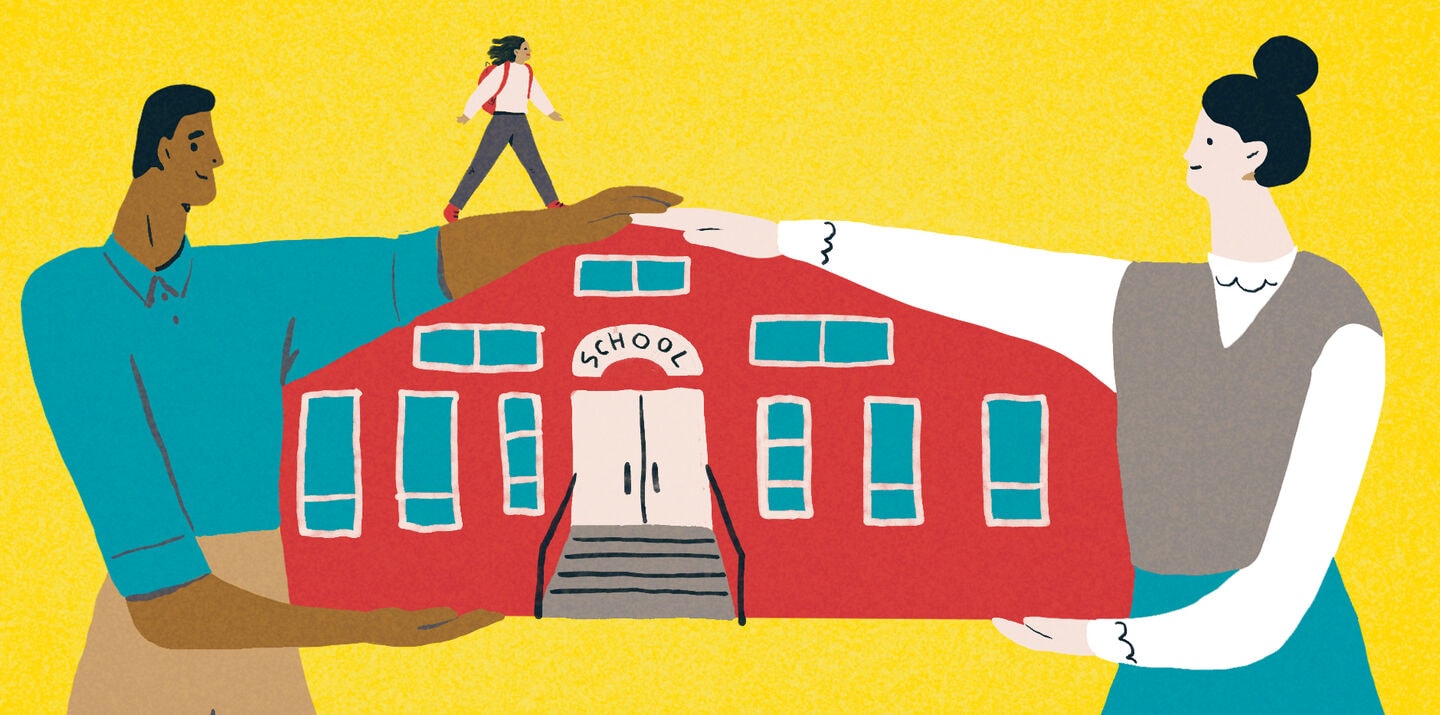
How to Harness the Power of Parent Connection
Reap the rewards of newfound parent partnership by offering more than the occasional update.
This story is the seventh in a series of pieces answering questions about how to return to in-person learning and how to do schooling differently—and better—post-pandemic. To source the questions, we spoke with dozens of educators, caregivers, and students. We are grateful for their curiosity and, despite all, their optimism.
Despite distance learning’s enormous toll on parents, it offered at least one positive upshot: Nearly 70% of parents felt more connected to their children’s education in 2020 than in years past, according to survey results published in March by the nonprofit organization Learning Heroes. Now, with most students back in classrooms, how can educators take advantage of those connections before they fray?
Try connecting parents with each other, says Nkenge Garrett (D.C. Region ’96), a family liaison for Richmond Public Schools in Virginia. Her district is launching a pilot parent support group to help parents build a network and see that they are not alone in their struggles and triumphs. Sessions will include tips to improve work-life balance and strategies for combating stress.
The hope is that children benefit, too, when parents are treated as partners. “When a person knows that they are valued and appreciated, they’ll partner with you to make sure that their children are successful,” Garrett says.
As pandemic restrictions ease, Richmond Public Schools aims to provide multi-generational offerings that target students’ needs while also engaging and supporting caregivers, Garrett says. The district plans to partner with local groups—think health centers or job training programs—to offer supports and services at district-run facilities. The goal is to create schools that anchor communities and where parents feel welcome and empowered.
“I don’t know if our parents know how really resilient they are,” Garrett says. Educators would do well to celebrate that, she says. “Because this is difficult for everyone.”
Encourage parents to share insights gleaned during remote learning and in its aftermath, says Windy Lopez-Aflitto, Learning Heroes’ vice president of content and partnerships. Parents know their children's interests and motivations, she says, “and that can really help teachers do their jobs.”
And when updating caregivers with the goings-on in the classroom, don’t overwhelm them. Instead of tackling the entirety of academic learning loss, for example, focus on a few key skills at a time, Lopez-Aflitto says. Many parents found joy and connection in learning alongside their child, so offer them resources—readings, videos, games, and activities—to carry that feeling into a post-pandemic future.
Finally, Lopez-Aflitto says, keep parents connected by acknowledging their lived experiences and celebrating them, especially after such a uniquely challenging year. Help parents see “that there are so many things [they] can role model for their children that can help with [their students’] resilience in the classroom and in life.”
Sign up to receive articles like this in your inbox!
Thanks for signing up!
Content is loading...



